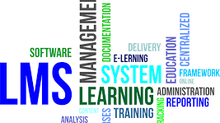Exciting uses of Virtual Reality
- Dylan Hedges
- Aug 9, 2017
- 2 min read

Last week I continued a discussion on 360 video and virtual reality training, focusing on the possible “unseen” advantages of using Virtual Reality as part of your training. This week I would like to continue the discussion and look at two of the industries that have embraced Virtual Reality, and then conclude the discussion next week by looking at where the remaining opportunities still exist.
As mentioned above, there exist today many industries that have completely embraced VR to solve their training needs, with two of my “favorites” listed below. Note…by favourite, I am referring to those that have found unique uses for 360 video and virtual reality that not only solve a training need…but more importantly, are helping people in many ways not possible just a few years ago.
Medicine and Healthcare
Virtual reality has been utilized in several facets of the healthcare industry, with the most obvious being the training of doctors and surgeons who use VR as a means to practice their diagnostic skills, assess an emergency situation and even perform surgical procedures, all using a virtual environment or patient! One of the most interesting uses however, well, to me anyway, is the treatment of people who suffer from social anxieties. To summarize the procedure, Doctors use VR to simulate an environment and expose their patients to the situation that is at the root of their anxiety. For example, a patient with a fear of flying or heights could experience this environment while in the safety of the Doctor’s office. The Doctor could then be providing the necessary treatment real time, focusing on how the patient is feeing at that moment, and how to cope with or overcome these feelings of anxiety.
Law Enforcement
It goes without saying that being a police officer is one of the more dangerous jobs one can have. The amount of stress that is the result of a traumatic or tense situation can have long lasting effects on a police officer. As such, it is no surprise that several law enforcement agencies have looked to Virtual Reality to help new recruits and employees prepare for the intense situational nature of the job, but in a controlled environment that all the while seems very, very real. One common use is environment assessment where police officers are exposed to a familiar locati0on (mall, city street, etc..) and tasked with identifying potential threats to the public and/or themselves. The officers are also exposed to cultural situations that they may not necessarily have much experience in. The goal of the training is simple…prepare the officer in the most realistic environment possible while keeping them safe, which in turn leads to a better trained law enforcement professional who is better equipped to serve the public.
Next week I will conclude the discussion with a look at potential uses of VR training that have not yet been utilized to any great extent.































Comentários